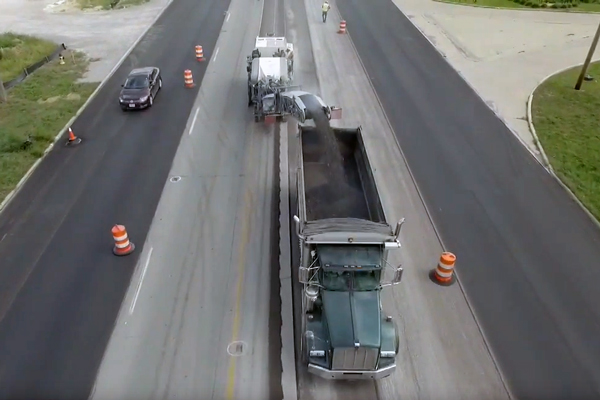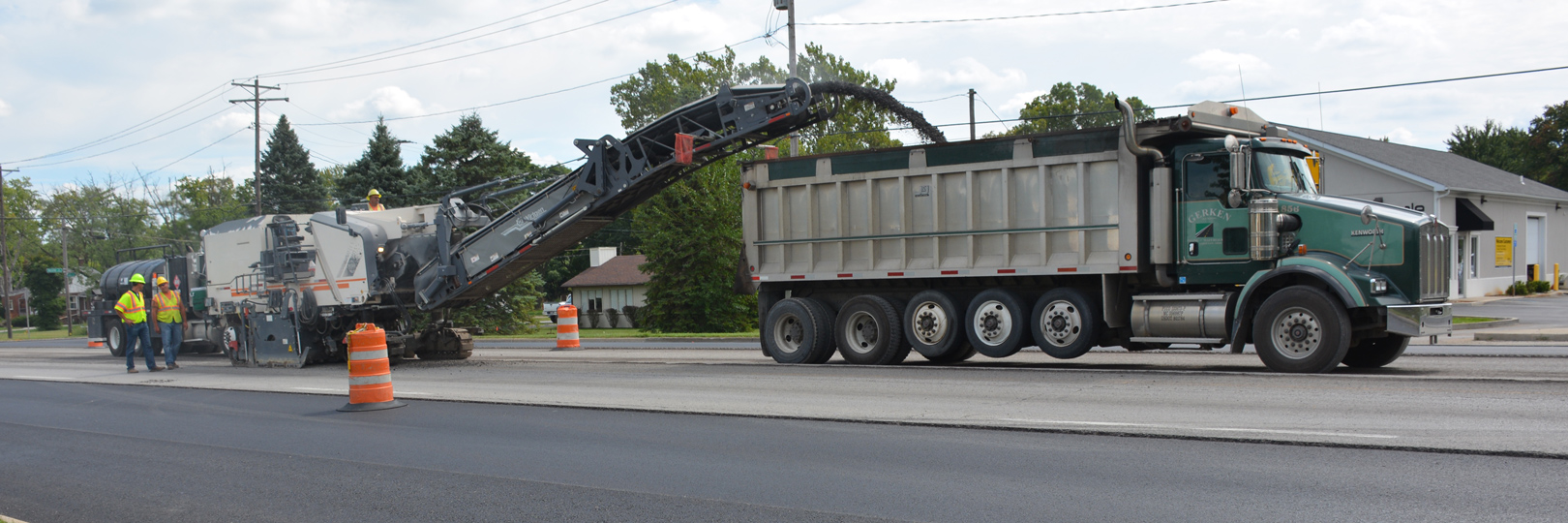INDUSTRY NEWS
America’s Most Recycled Material
Reclaimed asphalt pavement.

Asphalt pavement contains high-quality aggregates that are reusable in new asphalt mixtures.
When it comes to road surfacing, highway engineers overwhelmingly recommend paving with asphalt. Indeed, 94 percent of US roads contain asphalt surfaces. The advantages of asphalt include its unique engineering properties and cost-effectiveness.
But, the most significant benefit might be asphalt’s contribution to sustainability. According to the National Asphalt Pavement Association, asphalt is America’s most recycled material.
Reclaiming Asphalt Aggregates
Road resurfacing and reconstruction involve removing existing asphalt pavements, yielding materials containing asphalt and aggregates. Reclaimed asphalt pavement (RAP) comprises high-quality aggregates that—when properly crushed and filtered—can be reused in new asphalt mixtures.
Asphalt extraction entails milling or full-depth removal. Milling machines can remove up to two inches of the pavement surface in a single pass. Full-depth removal involves breaking up the pavement using bulldozers or pneumatic breakers.
Reclaimed material gets loaded into trucks and hauled to a central processing plant, where it is crushed and screened. Some reclaimed asphalt pavements are processed on the job site using hot and cold in-place recycling processes.
Asphalt mixtures containing reclaimed asphalt pavement have been around for decades. In laboratory research and field evaluations, recycled asphalt mixtures containing high levels of RAP show structural performance equal to and often better than conventional mixes. Furthermore, many studies have found that using higher percentages of RAP does not increase mixture variability.
Recycling By The Numbers
Asphalt plants commonly use recycled materials in mixtures instead of other aggregates or binders. Average RAP content can exceed 21 percent of asphalt mix by weight.
The industry’s recent focus on sustainable practices has significantly reduced emissions of greenhouse gases (GHG). In 2019, expanding the use of RAP helped reduce GHG emissions by 2.9 metric tons of carbon dioxide equivalent (CO2e), comparable to annual emissions from more than 600,000 passenger vehicles.
While tracking reclaimed asphalt pavement data needs more consistency, estimates show that the United States produces nearly 41 million metric tons of RAP annually. And the amount of recycled asphalt mixture in new pavements reached 95 percent in 2021.
A completely recyclable product, RAP can be reused repeatedly, lessening the demand for virgin materials. More than 94 percent of RAP goes into new asphalt mixtures. Nationally, RAP makes up an average rate of 21 percent of new asphalt mixtures.
Using RAP saves $3.3 billion annually, making paving with asphalt economically as well as environmentally sustainable.
At Gerken, removed asphalt millings are recycled and used as a base material for future projects. We recycle most grindings as part of our hot mix asphalt production process. The end products consist of reclaimed asphalt aggregates, crushed and recycled concrete aggregates, and crushed limestone aggregates, all used for asphalt paving, granular fill, and road base material. In 2022, The Gerken Companies used more than 300,000 tons of reclaimed asphalt pavement.


